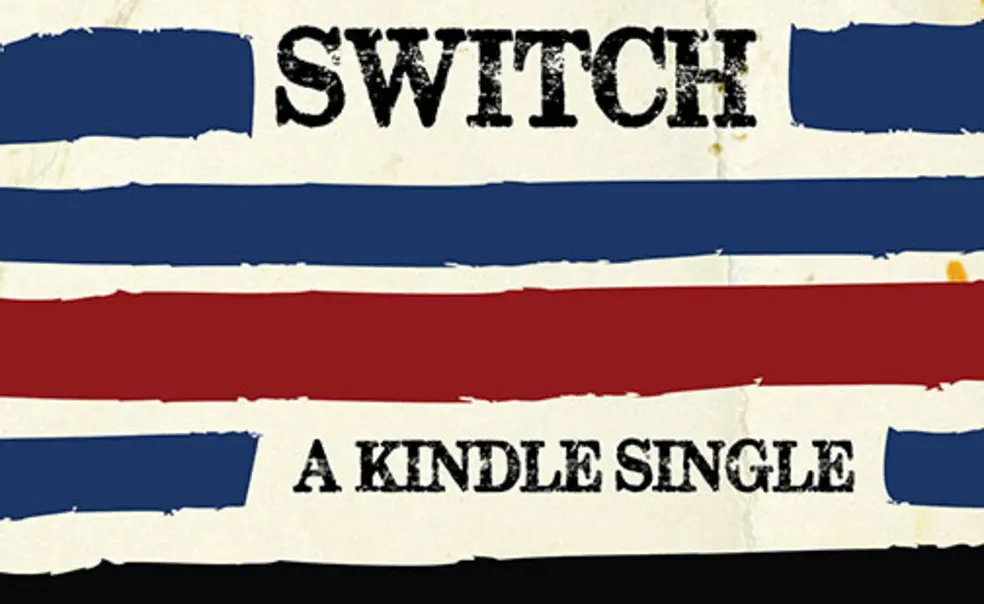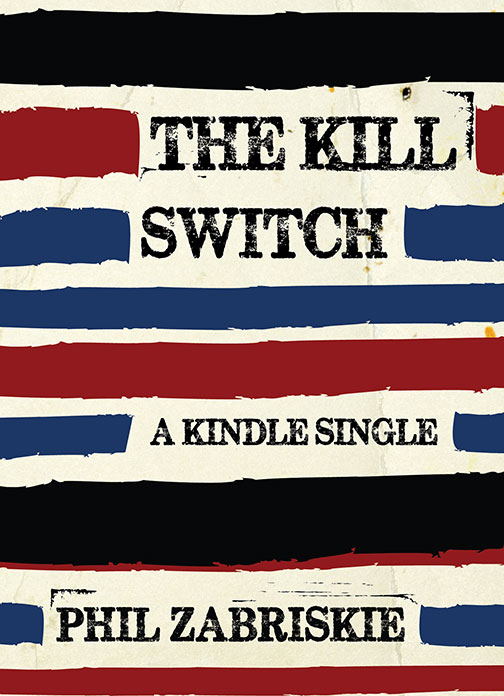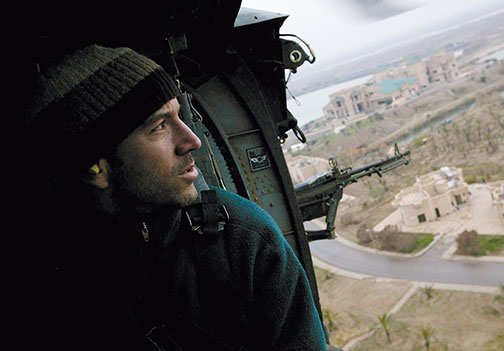How do soldiers learn to kill during wartime? And how do they live with their actions afterward? Phil Zabriskie ’94, who has reported from the wars in Iraq and Afghanistan for Time and other publications, gets to the heart of those questions in The Kill Switch through the experiences of two Marines who fought in Iraq: Brian Chontosh, who was awarded the Navy Cross for his actions; and Ben Nelson, who was badly wounded during his second tour. The Kill Switch, an e-book, is available on Amazon.com.
You write that, to Chontosh, “what mattered was killing the enemy and making sure he and his men survived.” In the moment, he wasn’t really thinking about what it meant to take someone else’s life.
His account was consistent with many others. It stems partially from a notion of being “mission-oriented” when in the fight, dealing with what’s right in front of you — no more, no less. That is drilled into them long before they ever get to the field, and they’ve practiced over and over for those moments.
I think a lot of people do have the capacity to kill, given the right scenario. People like Chontosh and Nelson are self-selecting, though. They chose the Marines. They chose infantry. And they made it through several rounds of training that is designed to help overcome the resistance most people have to killing.
What surprised you the most as you interviewed these soldiers?
How willing most people were to talk about this topic, as if they were just waiting for the chance to discuss it. I also think I became part of their process of making sense of it, or trying to. My questions gave them a license to talk about something so often cast as unspeakable.
How do soldiers who have killed the enemy adjust to civilian life?
Several therapists I spoke to said the adjustment can get harder, not easier, as time passes. Many former soldiers will spend a lot of time trying to process this — as we all should, if we truly want to grasp what it was our political leaders asked these men to do.
Interview conducted and condensed by John McMurray ’95














No responses yet